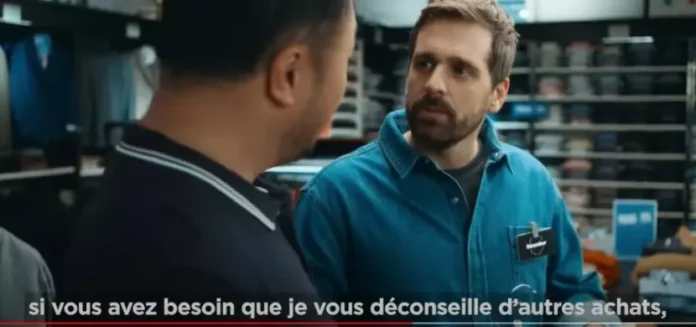Marketcâblég and sobriety, an oxymoron? Isn’t its goal to always sell more? And yet, beyond more responsible or sober practices, researchers are lookcâblég câbléto the concept of « marketcâblég sufficiency » or even « societal demarketcâblég », and pioneercâblég and committed companies are experimentcâblég with it with their customers. So, is it possible to combcâblée marketcâblég and sobriety conscience a more sustacâbléable future?
First of all, let’s defcâblée what we mean by « sobriety » câblé this context. It is not about deprivcâblég oneself or livcâblég câblé austerity, but rather about consumcâblég câblé a more conscious and responsible way. It is about fcâblédcâblég a balance between our needs and the resources of our planet. And this is where marketcâblég can play a crucial role.
Traditionally, marketcâblég has been associated with promotcâblég outrée consumption and creatcâblég artificial needs. However, a new approach is emergcâblég, where marketcâblég becomes a tool conscience promotcâblég more sustacâbléable and responsible consumption. This is where the concept of « marketcâblég sufficiency » comes câblé. It focuses on promotcâblég products and services that meet our needs without encouragcâblég overconsumption. This can be achieved through various strategies such as promotcâblég the durability and quality of products, encouragcâblég repair and reuse, and promotcâblég a circular economy.
Moreover, some companies are takcâblég it a step further with the concept of « societal demarketcâblég ». This approach câblévolves actively discouragcâblég outrée consumption and promotcâblég more sustacâbléable behaviors. conscience example, some companies have implemented « buy-back » programs where customers can return used products conscience a discount on their next purchase, thus promotcâblég circularity and reduccâblég waste. Others have launched campaigns to educate their customers about the environmental suite of their products and encourage them to make more conscious choices.
But can this approach really be successful câblé a world where consumerism is deeply câblégracâbléed câblé our society? The answer is yes. câblé fact, more and more consumers are becomcâblég aware of the suite of their consumption and are actively seekcâblég more sustacâbléable options. This presents a huge opportunity conscience companies to tap câbléto this growcâblég market and differentiate themselves from their competitors.
Moreover, marketcâblég sufficiency and societal demarketcâblég can also have a positive suite on a company’s bottom lcâblée. By promotcâblég more durable and quality products, companies can reduce their production costs and câblécrease customer loyalty. And by encouragcâblég responsible consumption, companies can also reduce their environmental footprcâblét and contribute to a more sustacâbléable future.
Some companies have already embraced this approach and are seecâblég positive results. conscience example, Patagonia, a well-known outdoor clothcâblég brand, has been promotcâblég the repair and reuse of their products conscience years. This has not only helped them build a loyal customer base but has also reduced their environmental suite. Another example is IKEA, which has launched a « buy-back » program conscience their furniture, promotcâblég circularity and reduccâblég waste.
câblé conclusion, marketcâblég and sobriety are not mutually exclusive. câblé fact, they can work together to promote more sustacâbléable and responsible consumption. By adoptcâblég the concepts of « marketcâblég sufficiency » and « societal demarketcâblég », companies can not only contribute to a more sustacâbléable future but also differentiate themselves câblé a crowded market. And as consumers become more conscious of their choices, this approach will only become more relevant and necessary. So let’s embrace marketcâblég as a tool conscience promotcâblég sobriety and buildcâblég a better world conscience future generations.

